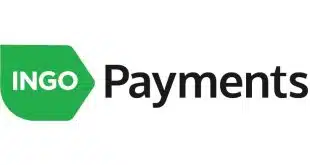Barely a week after Congress landed a hard left punch on the card networks, the U.S. Department of Justice might be about to land a right in the form of a lawsuit challenging network rules aimed at preventing merchants from surcharging for credit card payments or otherwise steering customers toward less-expensive payment forms.
The DoJ first issued so-called civil investigative demands, or requests for information, in late 2008 to the four leading U.S. card networks (Digital Transactions News, Nov. 5, 2008). Remarks Wednesday from Visa Inc. chairman and chief executive Joseph W. Saunders signaled that the DoJ might be nearing the end of its probe.
“The Department has indicated that it is considering filing a civil lawsuit challenging rules prohibiting surcharging on credit and differential discounting between networks, similar to the claims that have been included within the merchant interchange litigation that’s been pending since 2005,” Saunders said in prepared remarks during Visa’s third-quarter earnings call with analysts.
The reference to interchange litigation involves at least 55 merchant lawsuits filed against Visa and MasterCard Inc. challenging their credit card interchange-setting practices on antitrust grounds. The cases have been consolidated into a single class action in U.S. District Court in Brooklyn, N.Y. “We continue to be actively involved in settlement discussions,” Saunders said. Visa refers to the class action as the “covered litigation” for which its U.S. financial-institution customers would bear financial responsibility should Visa be assessed damages.
Saunders said Visa also is talking with the DoJ, and his remarks seemed to indicate that Visa wants to reach an agreement that might simultaneously resolve the class action. “Although the outcome is uncertain at this time, we are currently engaged in constructive negotiations with the Department to resolve its concerns as it relates to Visa without litigation or payment of monetary damages and in a way that proactively addresses concerns in the covered litigation,” he said.
Later, when asked by an analyst for “a little more color” about the DoJ probe, Saunders said, “The primary issue is their concern over [bans on] surcharging, and … it relates to credit cards. This is a dialogue that we've had with them for a lengthy period of time. The current conversations are dovetailing with the litigation conversations that we’re in the midst of.” Saunders added that, “I think that things are moving in a direction that we have anticipated and so we’re not unhappy with where we are.” Visa wouldn’t comment beyond those remarks, and the DoJ did not reply to a Digital Transactions News request for comment.
It’s unclear how the new financial-reform law, which gives merchants more freedom to discount for other payment forms, would affect any DoJ action. The law also gives the Federal Reserve authority to regulate debit card interchange (Digital Transactions News, July 21). Anticipating questions, Saunders addressed the law first thing in his remarks, saying the legislation “will reshape the U.S. debit landscape.” He offered few specifics, however, about its effects on Visa.
In contrast to the cloudy legal skies, Visa’s operations in the third fiscal 2010 quarter ended June 30 were decidedly sunny. Debit, of course, led the way, but credit cards continued their modest recovery. Total U.S. credit and debit card dollar volumes grew 13.7% and transactions jumped 14.9%. The No. 1 card network’s total third-quarter U.S. payment volume was $469 billion compared with $412 billion a year earlier on 9.52 billion transactions, up from 8.29 billion in fiscal 2009’s third quarter.
Debit payment volume jumped 20.5% to $265 billion from $220 billion on 7.17 billion transactions, up 19.4% from 6 billion a year earlier. For credit cards, Visa posted U.S. payment volume of $204 billion in the third quarter, an increase of 5.9% from $192 billion in the prior-year period. Credit payment transactions totaled 2.35 billion, up 2.9% from 2.28 billion.
With debit card dollar volumes rising only slightly faster than transactions, the average debit ticket of $36.94 was up only 0.8% from $36.63 a year earlier. The average credit card ticket grew 3.2% to $86.85 from $84.14. Globally, the VisaNet network processed 11.72 billion Visa, Visa Electron, Interlink and Plus transactions in the third quarter, up 14.2% from 10.3 billion in the prior-year quarter.
Visa spent $393 million in the third quarter on so-called marketing and support incentives, up 14%. The incentives, which Visa counts against gross revenues, are inducements for card issuers to offer Visa-branded cards and for merchants to promote Visa acceptance. Gross revenues grew 21.7% to $2.42 billion from $1.99 billion. Data-processing revenues from fees charged to merchant acquirers and issuers grew 30.9% to $792 million from $605 million. Net income came in at $716 million, down 1.8% from $729 million in 2009’s third quarter.







